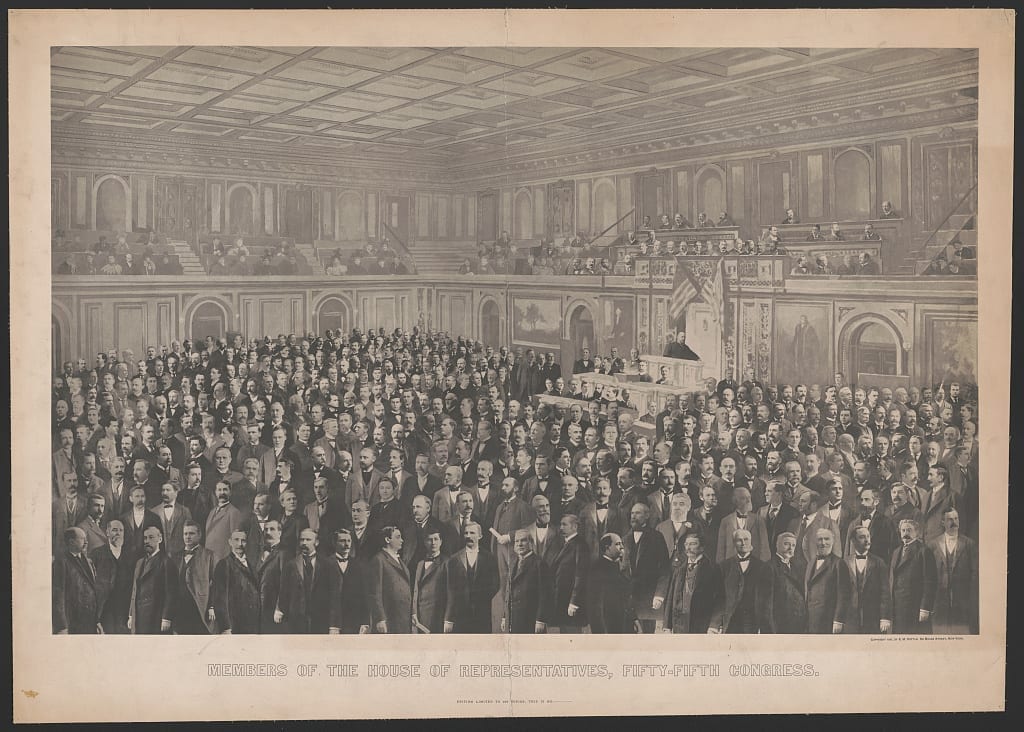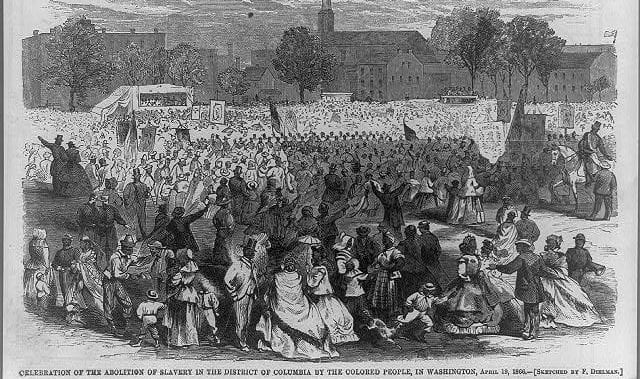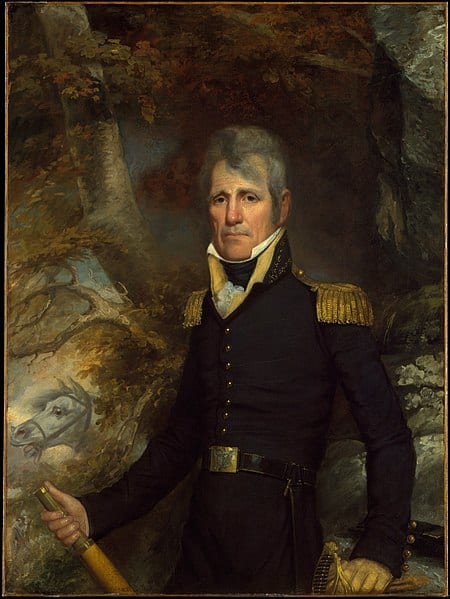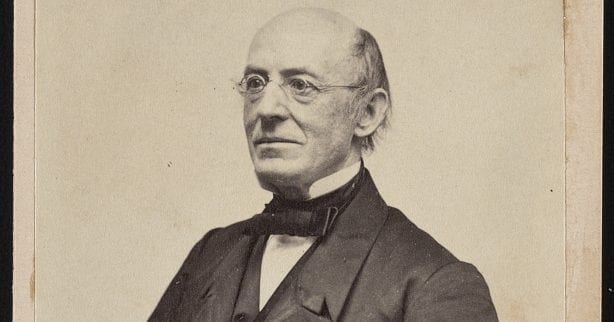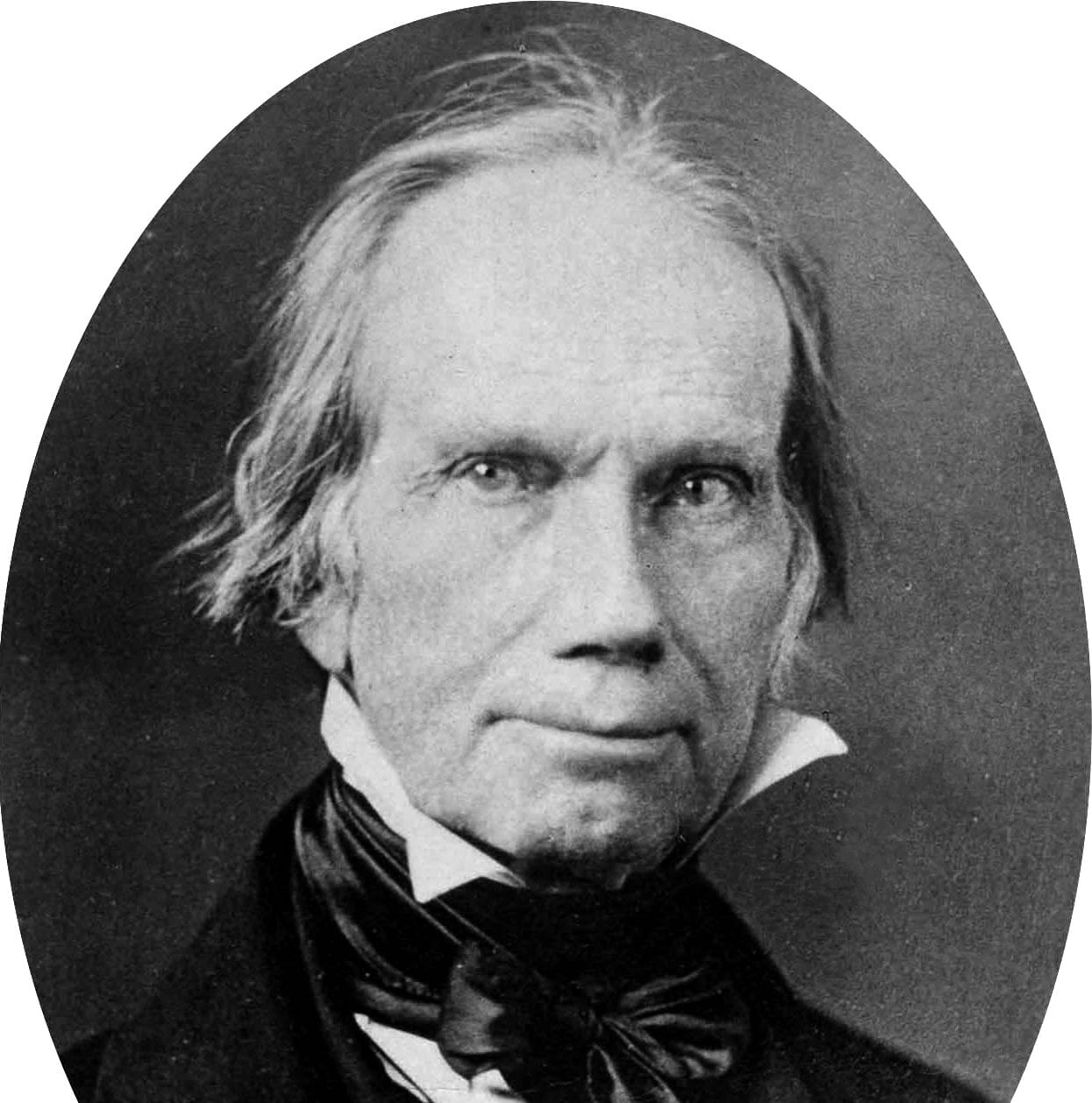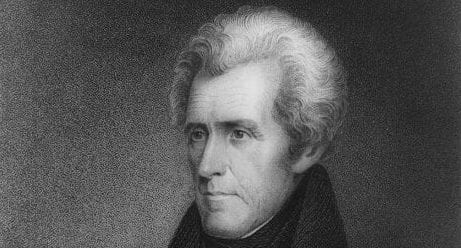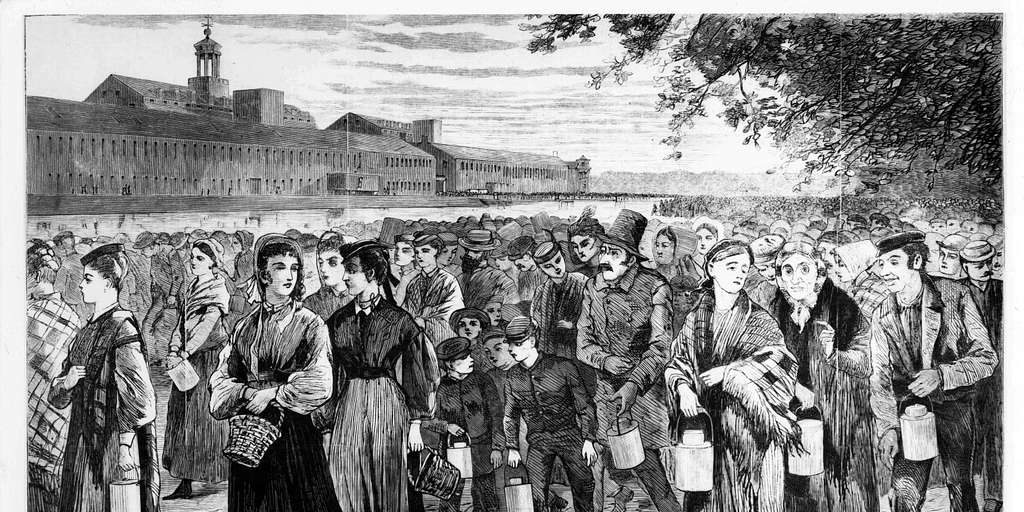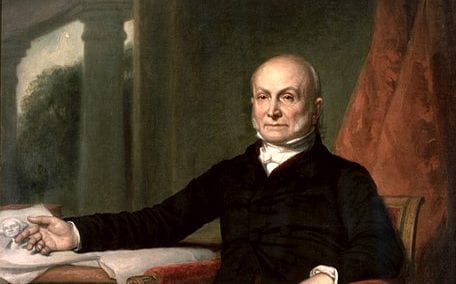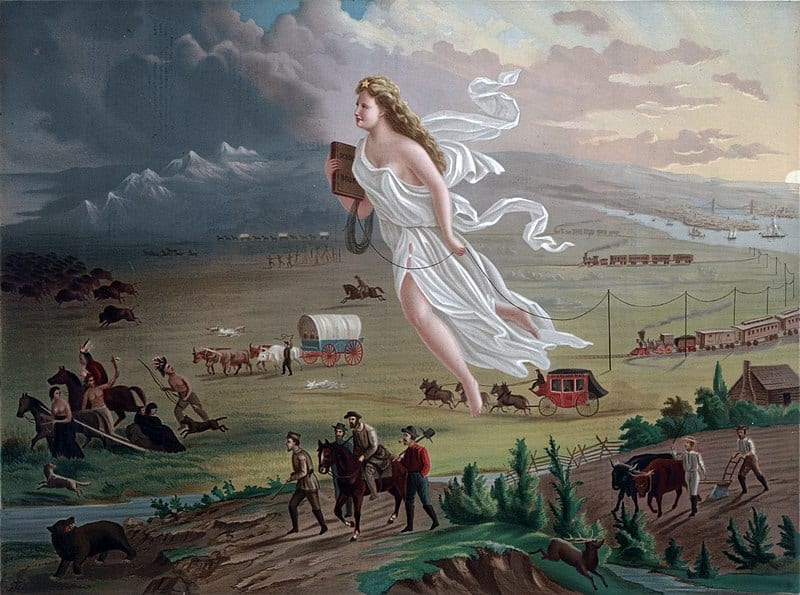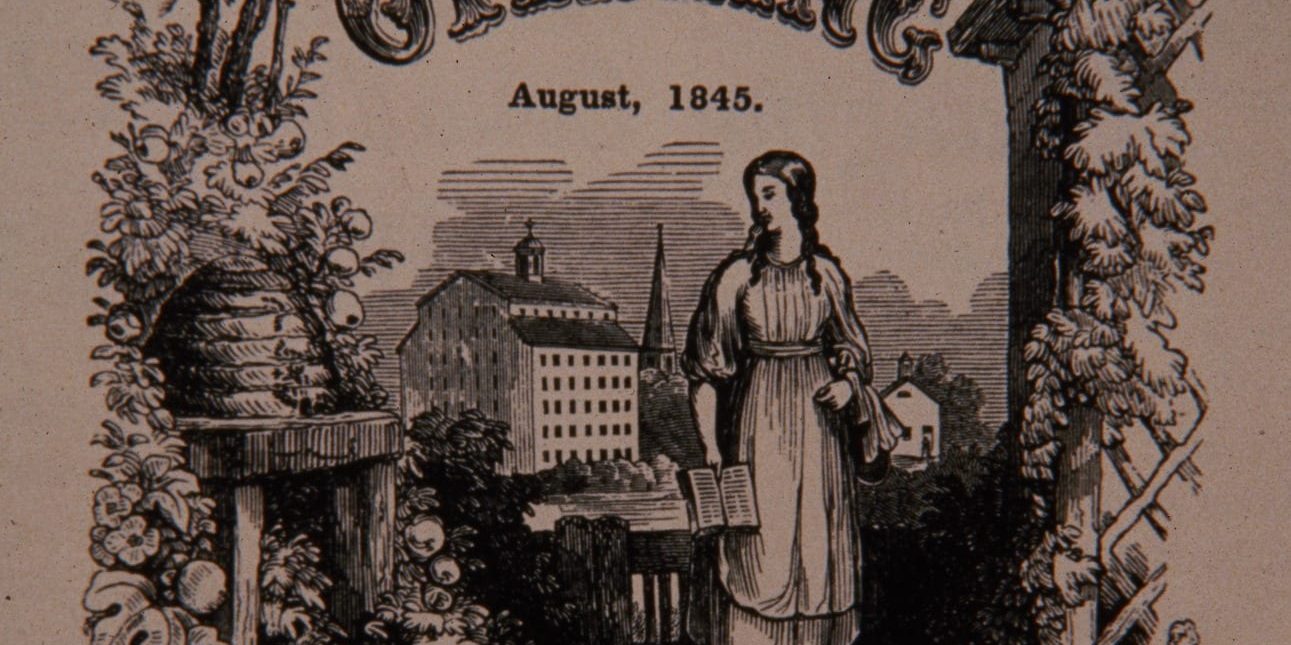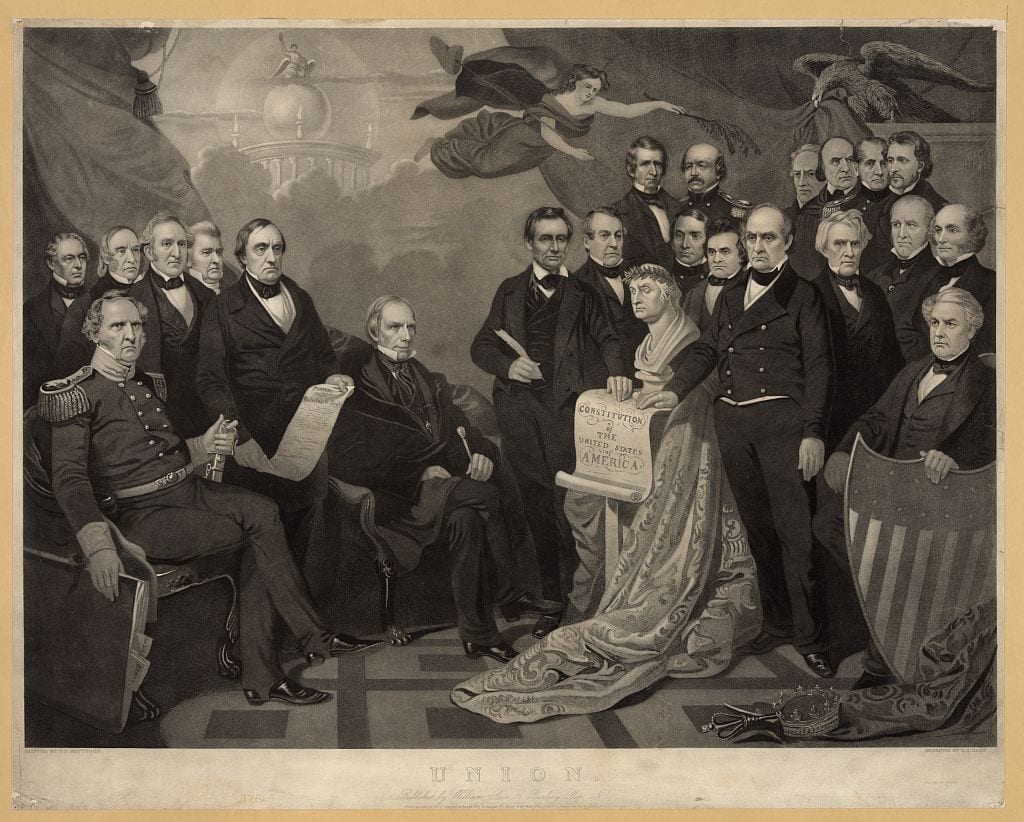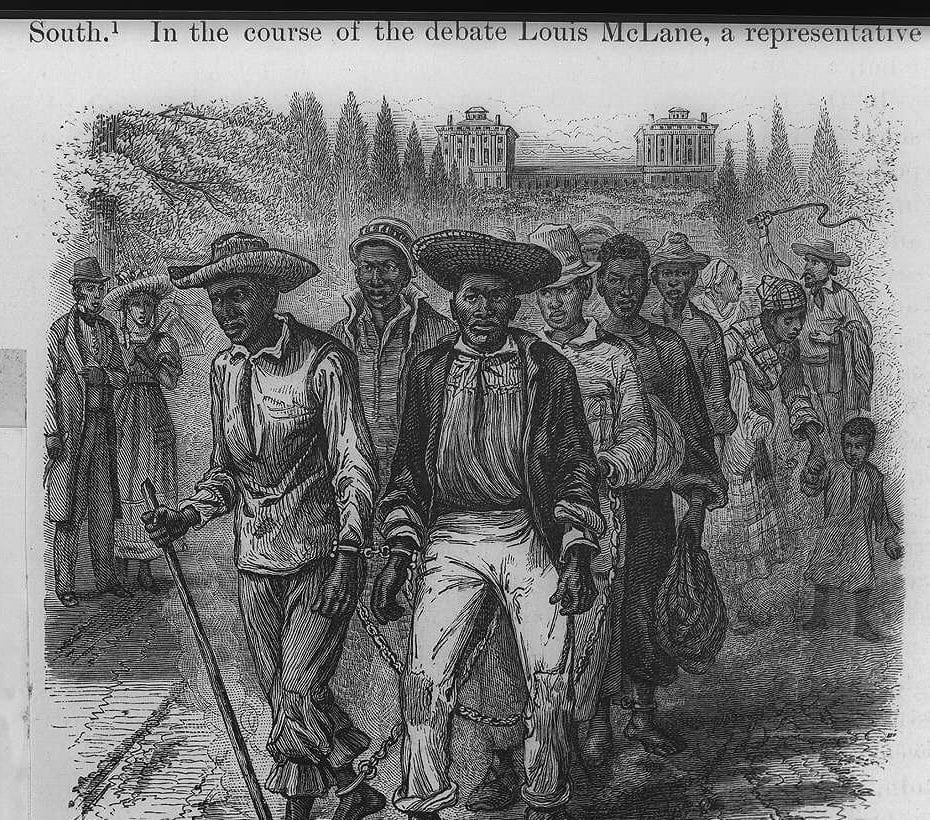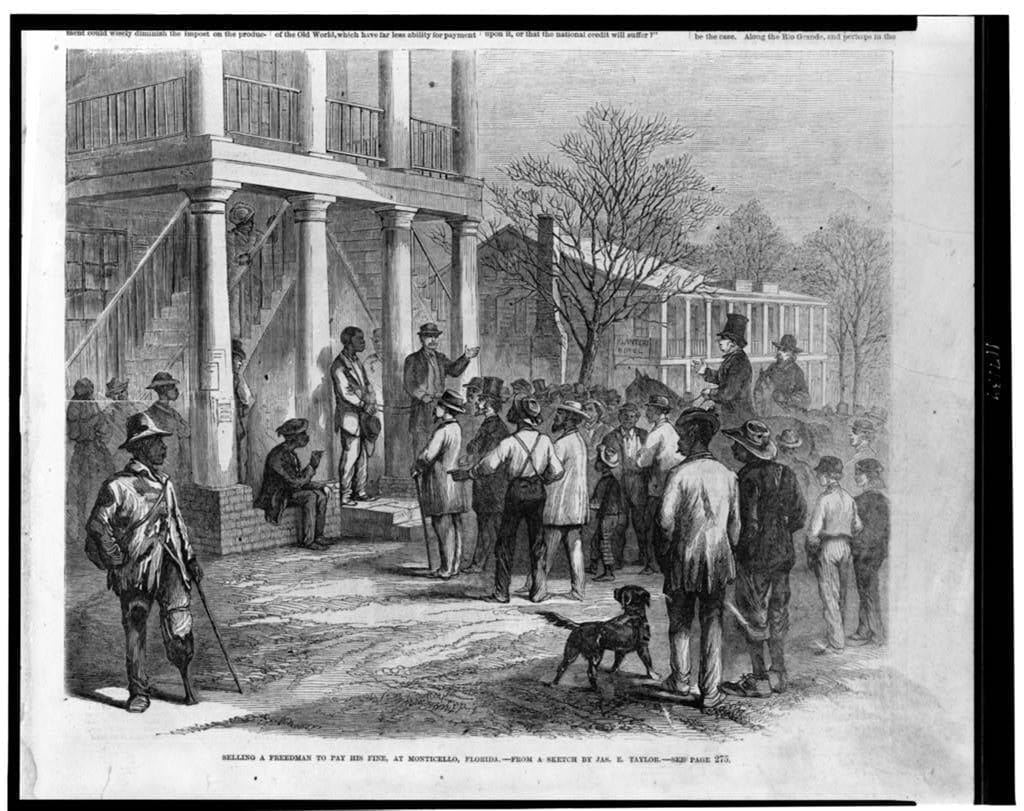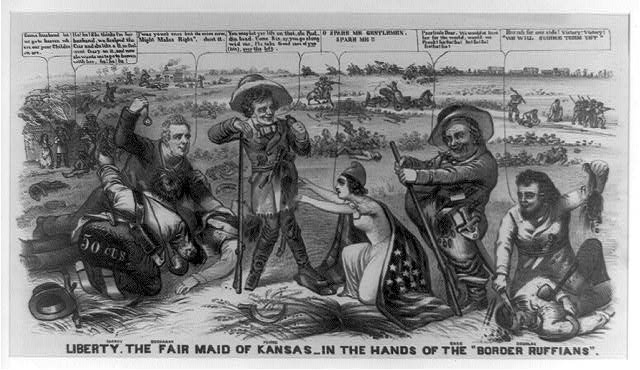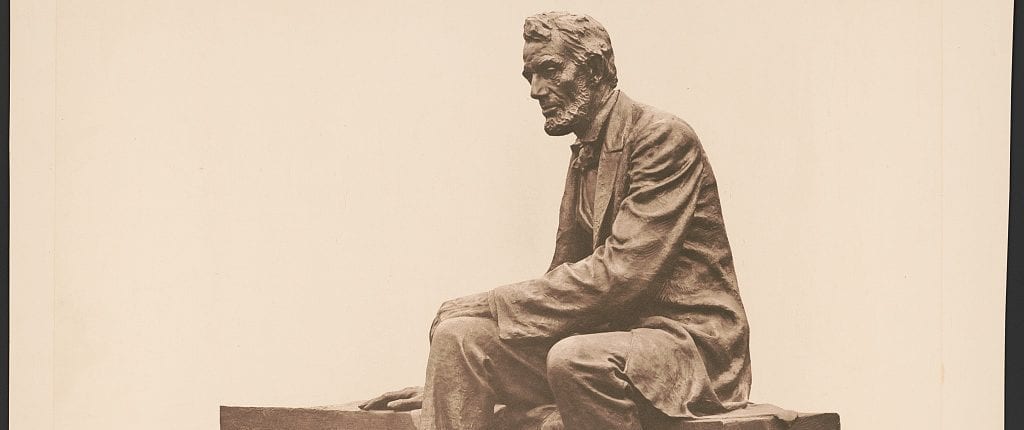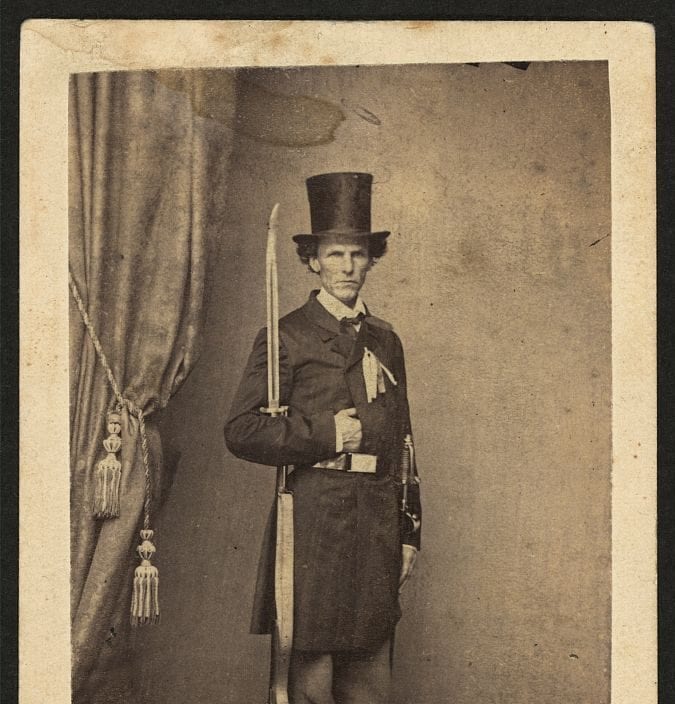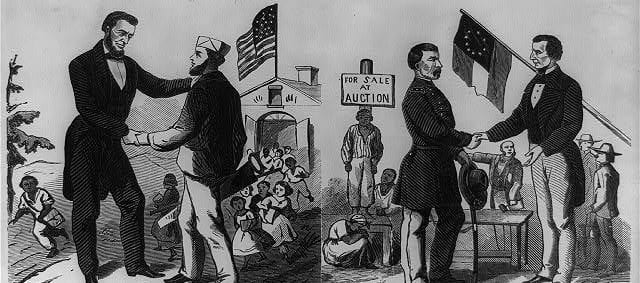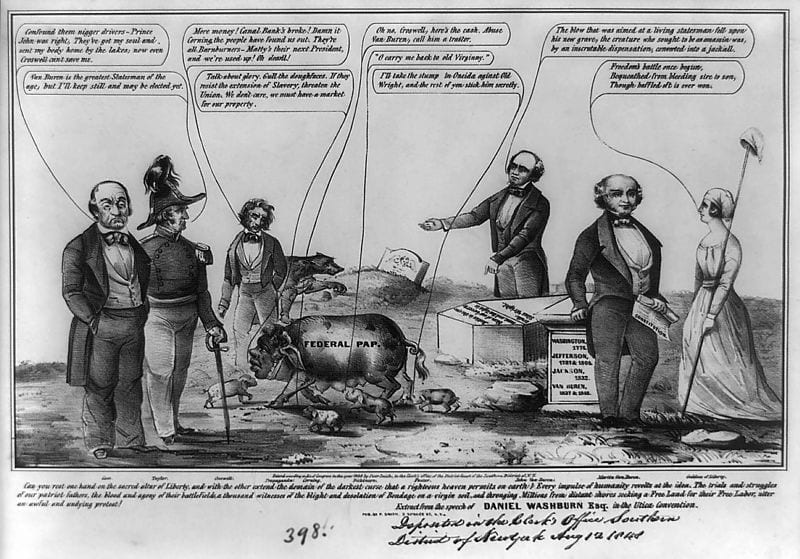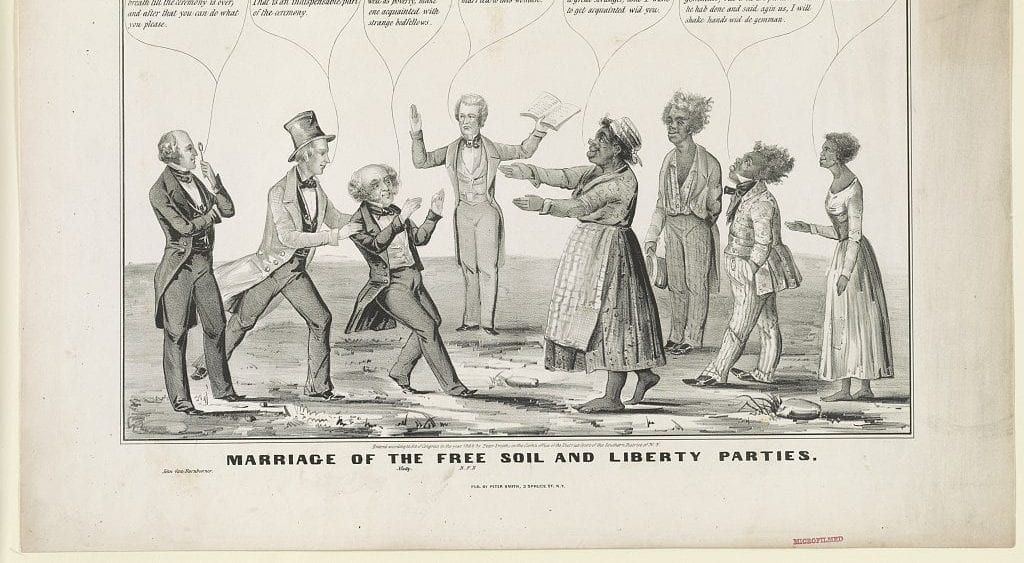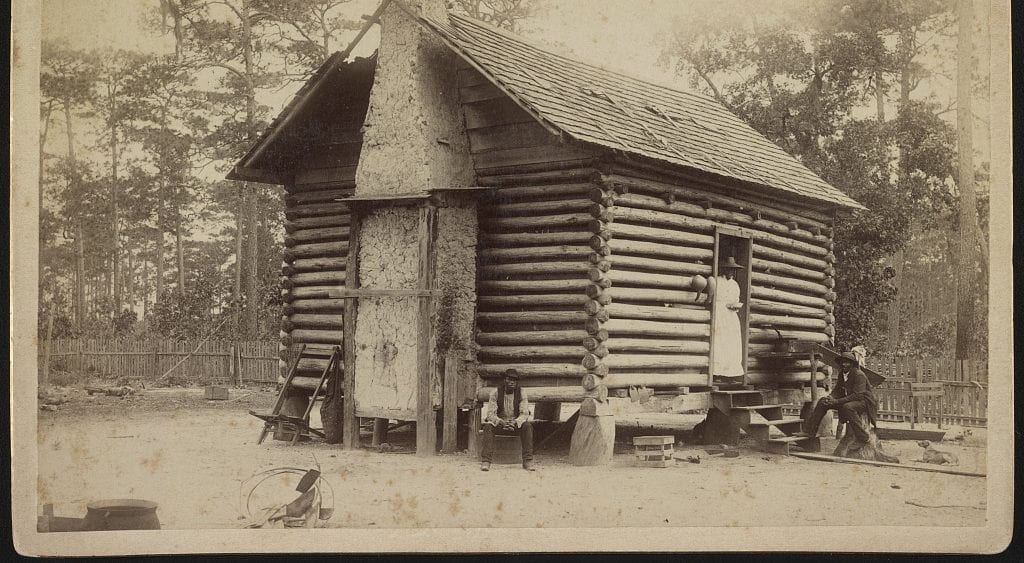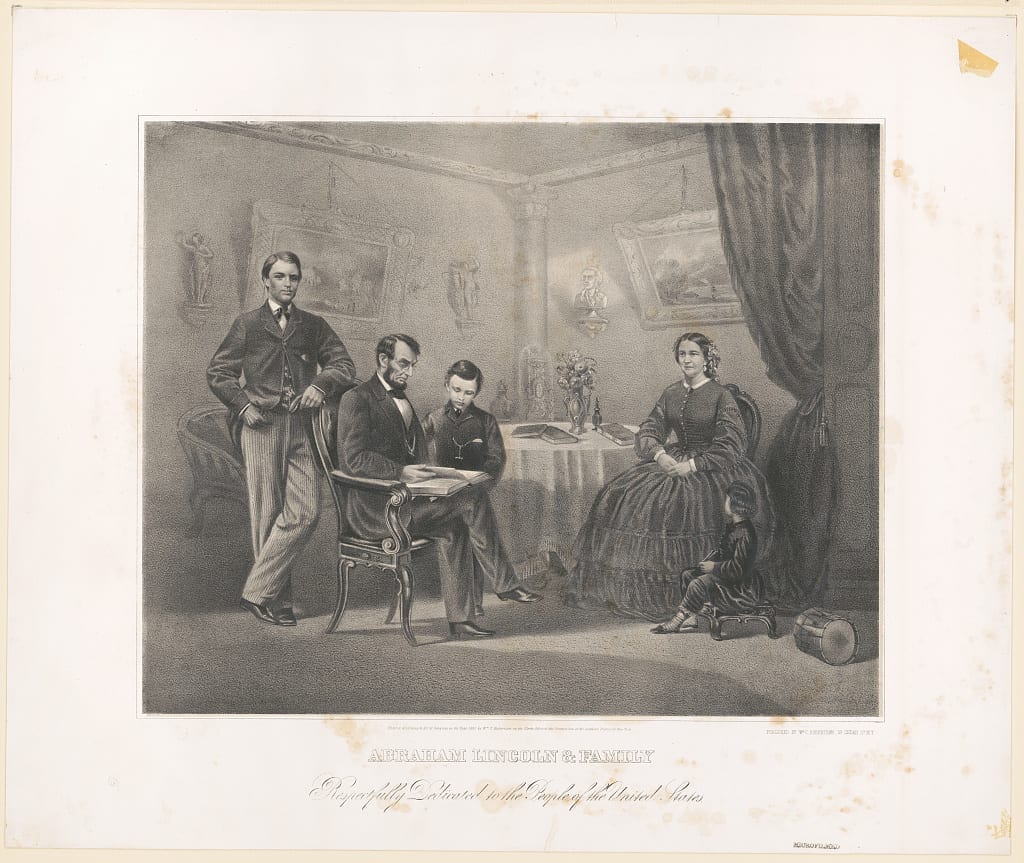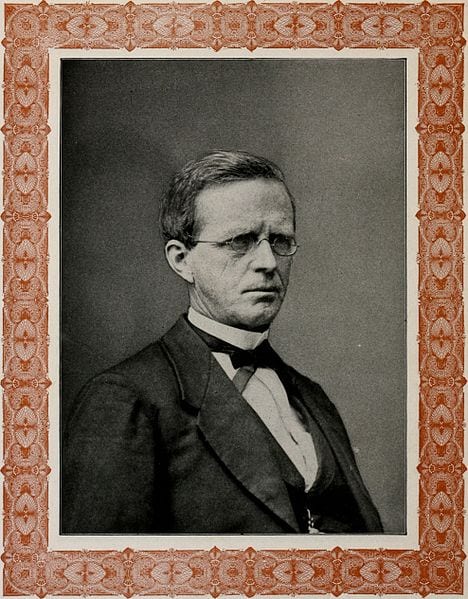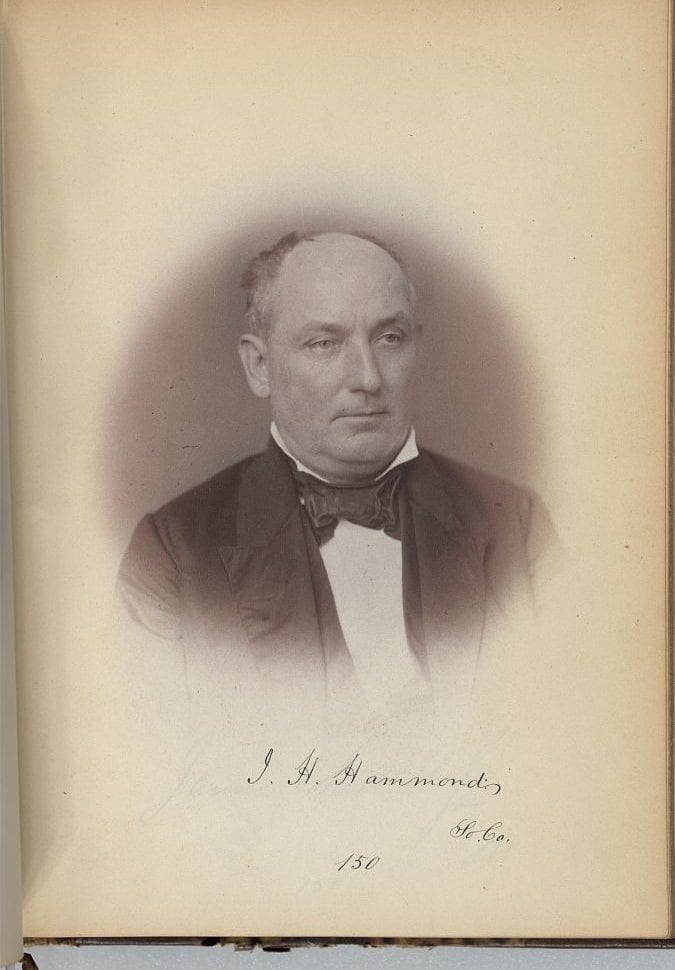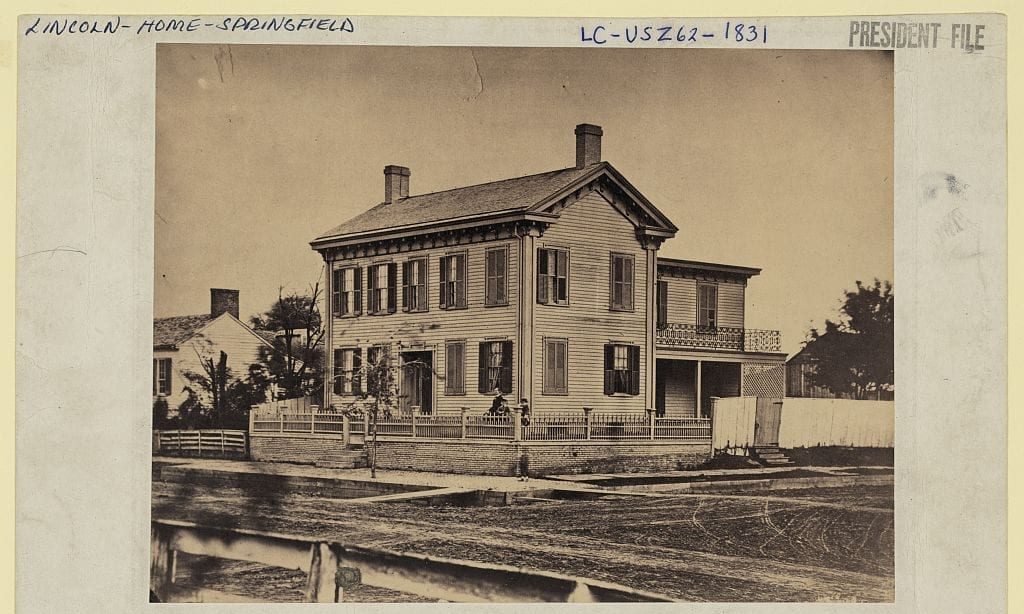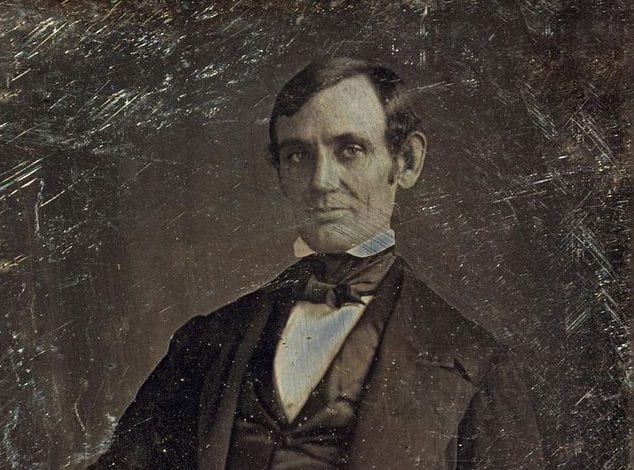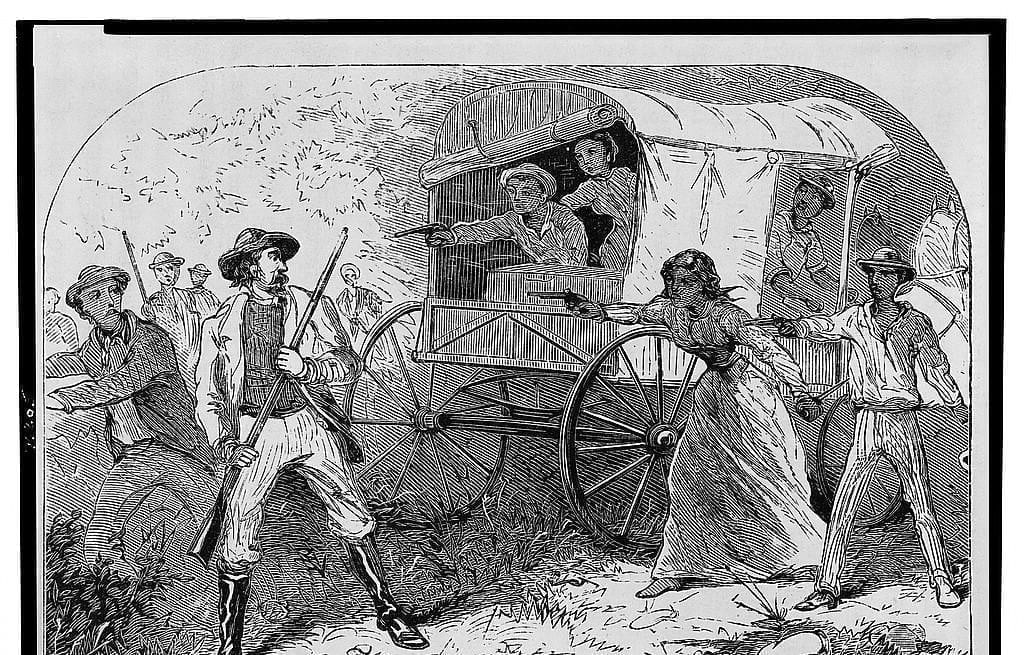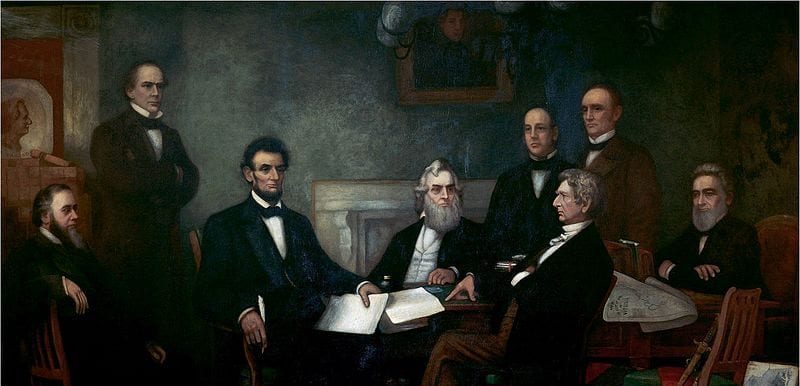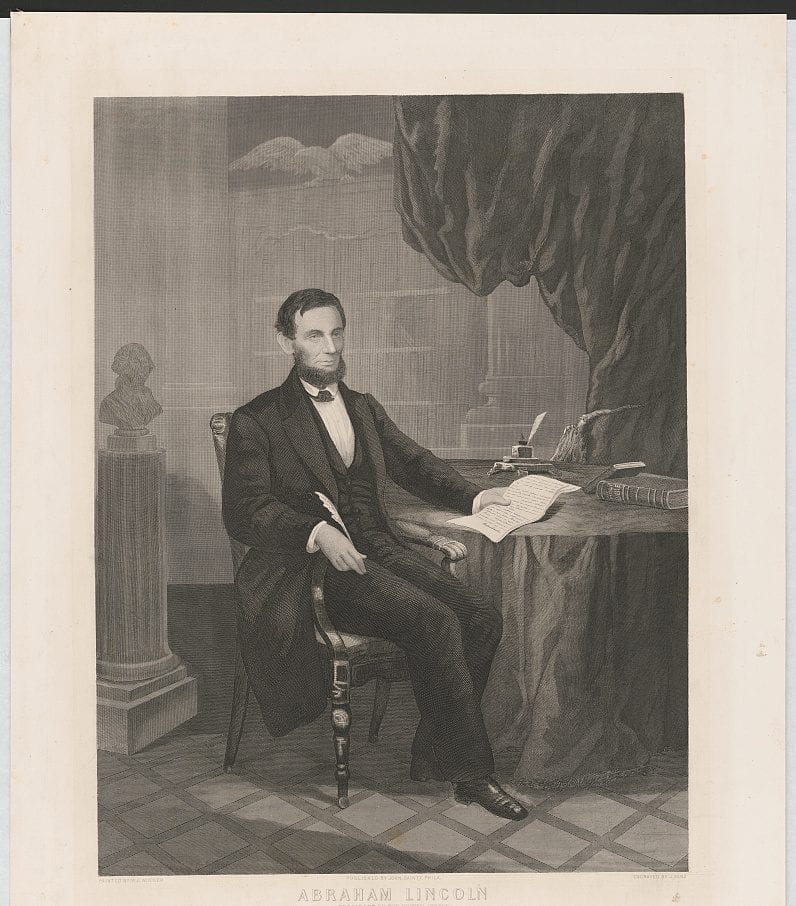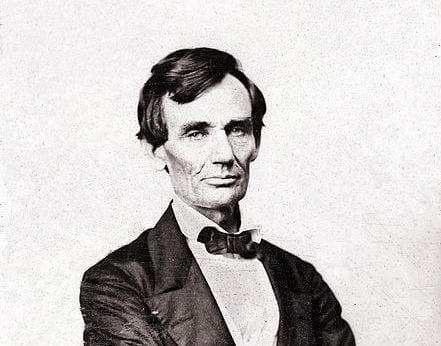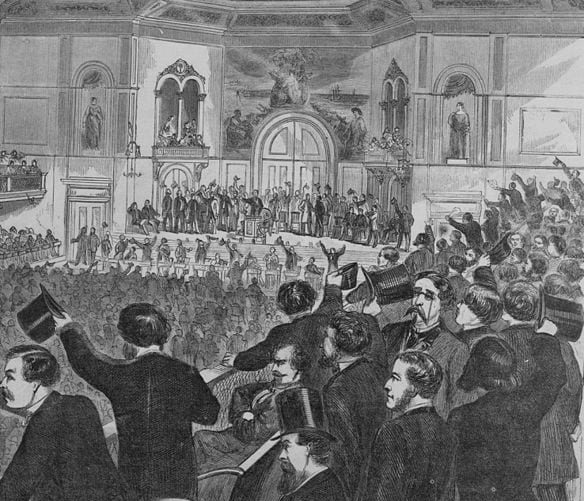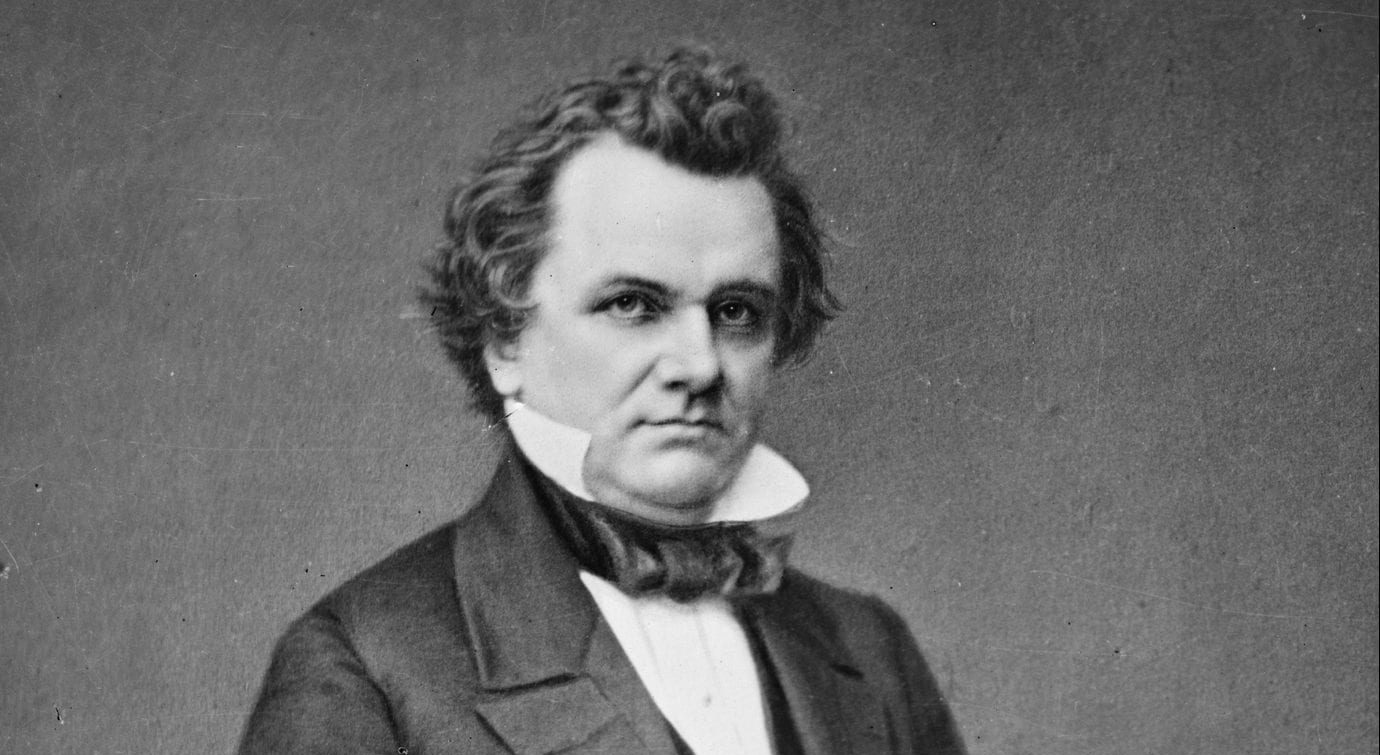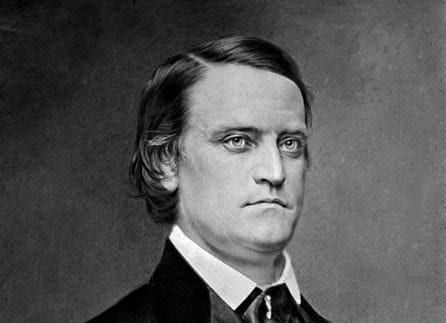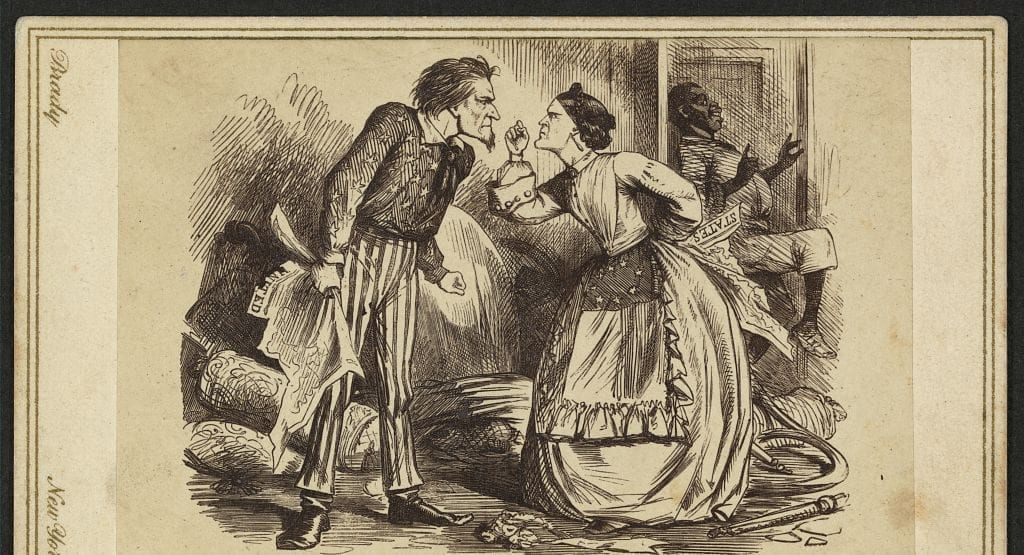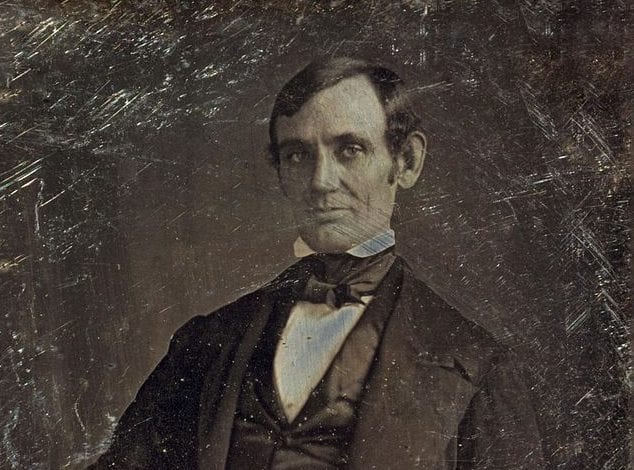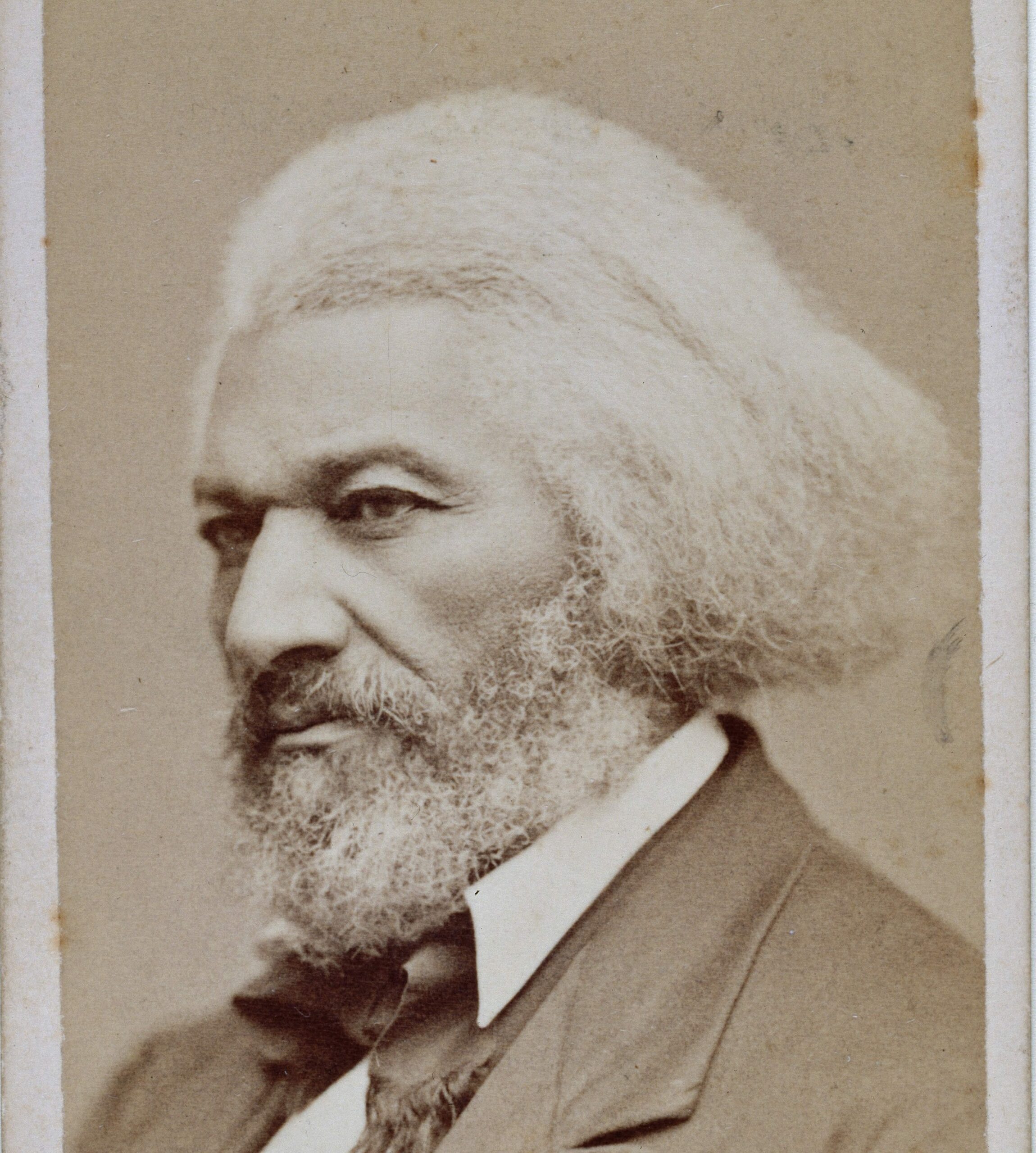
The day is dark and gloomy, unsettled and uncertain, like the condition of our country, in regard to the unnatural war with Mexico. The public mind is agitated and anxious, and is filled with serious apprehensions as to its indefinite continuance, and especially as to the consequences which its termination may bring forth, menacing the harmony, if not the existence, of our Union.
It is under these circumstances, I present myself before you. No ordinary occasion would have drawn me from the retirement in which I live; but, whilst a single pulsation of the human heart remains, it should, if necessary, be dedicated to the service of one’s country. And I have hope that, although I am a private and humble citizen, an expression of the views and opinions I entertain, might form some little addition to the general stock of information, and afford a small assistance in delivering our country from the perils and dangers which surround it.
I have come here with no purpose to attempt to make a fine speech, or any ambitious oratorical display. I have brought with me no rhetorical bouquets to throw into this assemblage. In the circle of the year, autumn has come, and the season of flowers has passed away. In the progress of years, my spring time has gone by, and I too am in the autumn of life, and feel the frost of age. My desire and aim are to address you, earnestly, calmly, seriously and plainly, upon the grave and momentous subjects which have brought us together. And I am most solicitous that not a solitary word may fall from me, offensive to any party or person in the whole extent of the union.
War, pestilence, and famine, by the common consent of mankind, are the three greatest calamities which can befal our species; and war, as the most direful, justly stands foremost and in front. Pestilence and famine, no doubt for wise although inscrutable purposes, are inflictions of Providence, to which it is our duty, therefore, to bow with obedience, humble submission and resignation. Their duration is not long, and their ravages are limited. They bring, indeed, great affliction whilst they last, but society soon recovers from their effects. War is the voluntary work of our own hands, and whatever reproaches it may deserve should be directed to ourselves. When it breaks out, its duration is indefinite and unknown—its vicissitudes are hidden from our view. In the sacrifice of human life, and in the waste of human treasure, in its losses and in its burthens, it affects both belligerent nations; and its sad effects of mangled bodies, of death, and of desolation, endure long after its thunders are hushed in peace. War unhinges society, disturbs its peaceful and regular industry, and scatters poisonous seeds of disease and immorality, which continue to germinate and diffuse theirbaneful influence long after it has ceased. Dazzling by its glitter, pomp and pageantry, it begets a spirit of wild adventure and romantic enterprise, and often disqualifies those who embark in it, after their return fromthe bloody fields of battle, from engaging in the industrious and peaceful vocations of life.
We are informed by a statement which is apparently correct, that the number of our countrymen slain in this lamentable Mexican war, although it has yet been of only 18 months existence, is equal to one half of the whole of the American loss during the seven years war of the Revolution! And I venture to assert that the expenditure of treasure which it has occasioned, when it shall come to be fairly ascertained and footed up, will be found to be more than half of the pecuniary cost of the war of our independence. And this is the condition of the party whose arms have been every where and constantly victorious!
How did we unhappily get involved in this war? It was predicted as the consequence of the annexation of Texas to the United States. If we had not Texas, we should have no war. The people were told that if that event happened, war would ensue. They were told that the war between Texas and Mexico had not been terminated by a treaty of peace; that Mexico still claimed Texas as a revolted province: and that, if we received Texas in our Union, we took along with her, the war existing between her and Mexico. And the Minister of Mexico [Juan N. Almonte] formally announced to the Government at Washington, that his nation would consider the annexation of Texas to the United States as producing a state of war. But all this was denied by the partisans of annexation. They insisted we should have no war, and even imputed to those who foretold it, sinister motives for their groundless prediction.
But, notwithstanding a state of virtual war necessarily resulted from the fact of annexation of one of the belligerents to the United States, actual hostilities might have been probably averted by prudence, moderation and wise statesmanship. If General Taylor had been permitted to remain, where his own good sense prompted him to believe he ought to remain, at the point of Corpus Christi; and, if a negotiation had been opened with Mexico, in a true spirit of amity and conciliation, war possibly might have been prevented. But, instead of this pacific and moderate course, whilst Mr. Slidell was bending his way to Mexico with his diplomatic credentials, General Taylor was ordered to transport his cannon, and to plant them, in a warlike attitude, opposite to Matamoras, on the east bank of the Rio Bravo; within the very disputed territory, the adjustment of which was to be the object of Mr. Slidell’s mission. What else could have transpired but a conflict of arms?
Thus the war commenced, and the President after having produced it, appealed to Congress. A bill was proposed to raise 50,000 volunteers, and in order to commit all who should vote for it, a preamble was inserted falsely attributing the commencement of the war to the act of Mexico. I have no doubt of the patriotic motives of those who, after struggling to divest the bill of that flagrant error, found themselves constrained to vote for it. But I must say that no earthly consideration would have ever tempted or provoked me to vote for a bill, with a palpable falsehood stamped on its face. Almost idolizing truth, as I do, I never, never, could have voted for that bill.
The exceptionable conduct of the Federal party, during that last British War, has excited an influence in the prosecution of the present war, and prevented a just discrimination between the two wars. That was a war of National defence, required for the vindication of the National rights and honor, and demanded by the indignant voice of the People. President Madison himself, I know, at first, reluctantly and with great doubt and hesitation, brought himself to the conviction that it ought to be declared. A leading, and perhaps the most influential member of his Cabinet, (Mr. Gallatin,) was, up to the time of its declaration, opposed to it. But nothing could withstand the irresistible force of public sentiment. It was a just war, and its great object, as announced at the time, was “Free Trade and Sailors Rights,” against the intolerable and oppressive acts of British power on the ocean. The justice of the war, far from being denied or controverted, was admitted by the Federal party, which only questioned it on considerations of policy. Being deliberately and constitutionally declared, it was, I think, their duty to have given to it their hearty co-operation. But the mass of them did not. They continued to oppose and thwart it, to discourage loans and enlistments, to deny the power of the General Government to march the militia beyond our limits, and to hold a Hartford Convention, which, whatever were its real objects, bore the aspect of seeking a dissolution of the Union itself. They lost and justly lost the public confidence.—But has not an apprehension of a similar fate, in a state of case widely different, repressed a fearless expression of their real sentiments in some of our public men?
How totally variant is the present war! This is no war of defence, but one unnecessary and of offensive aggression. It is Mexico that is defending her fire-sides, her castles and her altars, not we. And how different also is the conduct of the whig party of the present day from that of the major part of the federal party during the war of 1812! Far from interposing any obstacles to the prosecution of the war, if the Whigs in office are reproachable at all, it is for having lent too ready a facility to it, without careful examination into the objects of the war. And, out of office, who have rushed to the prosecution of the war with more ardor and alacrity than the Whigs? Whose hearts have bled more freely than those of the Whigs?—Who have more occasion to mourn the loss of sons, husbands, brothers, fathers, than whig parents, whig wives and whig brothers, in this deadly and unprofitable strife?
But the havoc of war is in progress, and the no less deplorable havoc of an inhospitable and pestilential climate. Without indulging in an unnecessary retrospect and useless reproaches on the past, all hearts and heads should unite in the patriotic endeavor to bring it to a satisfactory close. Is there no way that this can be done? Must we blindly continue the conflict, without any visible object, or any prospect of a definite termination?—This is the important subject upon which I desire to consult and to commune with you. Who, in this free government is, to decide upon the objects of a War, at its commencement, or at any time during its existence? Does the power belong to the Nation, to the collective wisdom of the Nation in Congress assembled, or is it vested solely in a single functionary of the government?
A declaration of war is the highest and most awful exercise of sovereignty. The Convention, which framed our federal constitution, had learned from the pages of history that it had been often and greatly abused. It had seen that war had often been commenced upon the most trifling pretexts; that it had been frequently waged to establish or exclude a dynasty; to snatch a crown from the head of one potentate and place it upon the head of another; that it had been often prosecuted to promote alien and other interests than those of the nation whose chief had proclaimed it, as in the case of English wars for Hanoverian interest; and, in short, that such a vast and tremendous power ought not to be confided to the perilous exercise of one single man. The Convention, therefore, resolved to guard the war-making power against those great abuses, of which in the hands of a monarch it was so susceptible. And the security, against those abuses which its wisdom devised, was to vest the war-making power in the Congress of the United States, being the immediate representatives of the people and the States. So apprehensive and jealous was the Convention of its abuse in any other hands, that it interdicted the exercise of the power to any State in the Union, without the consent of Congress. Congress, then, in our system of government, is the sole depository of that tremendous power.—The Constitution provides that Congress shall have power to declare war, and grant letters of marque and reprisal, to make rules concerning captures on land and water, to raise and support armies, to provide and maintain a navy, and to make rules for the government of the land and naval forces. Thus we perceive that the principal power, in regard to war, with all its ancillary attendants, is granted to Congress. Whenever called upon to determine upon the solemn question of peace or war, Congress must consider and deliberate and decide upon the motives, objects and causes of the war. And, if a war be commenced without any previous declaration of its objects, as in the case of the existing war with Mexico, Congress must necessarily possess the authority, at any time, to declare for what purposes it shall be further prosecuted. If we suppose Congress does not possess the controlling authority attributed to it; if it be conended that a war having been once commenced, the President of the United States may direct it to the accomplishment of any objects he pleases, without consulting and without any regard to the will of Congress, the Convention will have utterly failed in guarding the nation against the abuses and ambition of a single individual. Either Congress, or the President, must have the right of determining upon the objects for which a war shall be prosecuted. There is no other alternative. If the President possess it and may prosecute it for objects against the will of Congress, where is the difference between our free government and that of any other nation which may be governed by an absolute Czar, Emperor, or King?
Congress may omit, as it has omitted in the present war, to proclaim the objects for which it was commenced or has been since prosecuted, and in cases of such omission the President, being charged with the employment and direction of the national force is, necessarily, left to his own judgment to decide upon the objects, to the attainment of which that force shall be applied. But, whenever Congress shall think proper to declare, by some authentic act, for what purposes a war shall be commenced or continued it is the duty of the President to apply the national force to the attainment of those purposes. In the instance of the last war with Great Britain, the act of Congress by which it was declared was preceded by a message of President Madison enumerating the wrongs and injuries of which we complained against Great Britain. That message therefore, and without it the well known objects of the war, which was a war purely of defence, rendered it unnecessary that Congress should particularize, in the act, the specific objects for which it was proclaimed. The whole world knew that it was a war waged for Free Trade and Sailors’ Rights.
It may be urged that the President and Senate possess the treaty making power, without any express limitation as to its exercise; that the natural and ordinary termination of a war is by a treaty of peace; and therefore, that the President and Senate must possess the power to decide what stipulations and conditions shall enter into such a treaty. But it is not more true that the President and Senate possess the treaty making power, without limitation, than that Congress possesses the war making power, without restriction. These two powers then ought to be so interpreted as to reconcile the one with the other; and, in expounding the constitution, we ought to keep constantly in view the nature and structure of our free government, and especially the great object of the Convention in taking the war-making power out of the hands of a single man and placing it in the safer custody of the representatives of the whole nation. The desirable reconciliation between the two powers is effected by attributing to Congress the right to declare what shall be the objects of war, and to the President the duty of endeavoring to obtain those objects by the direction of the national force and by diplomacy.
I am broaching no new and speculative theory. The Statute book of the United States is full of examples of prior declarations by Congress of the objects to be attained by negotiations with Foreign Powers, and the archives of the Executive Department furnish abundant evidence of the accomplishment of those objects, or the attempt to accomplish them, by subsequent negotiation. Prior to the declaration of the last war against Great Britain, in all the restrictive measures which Congress adopted, against the two great belligerent Powers of Europe, clauses were inserted in the several acts establishing them, tendering to both or either of the belligerents the abolition of those restrictions if they would repeal their hostile Berlin and Milan decrees and Orders in Council, operating against our commerce and navigation. And these acts of Congress were invariably communicated, through the Executive, by diplomatic notes, to France and Great Britain, as the basis upon which it was proposed to restore friendly intercourse with them. So, after the termination of the war, various acts of Congress were passed, from time to time, offering to Foreign Powers the principle of reciprocity in the commerce and navigation of the United States with them. Out of these acts have sprung a class, and a large class, of treaties (four or five of which were negotiated, whilst I was in the department of State,) commonly called reciprocity treaties concluded under all the Presidents, from Mr. Madison to Mr. Van Buren, inclusive. And, with regard to commercial treaties, negotiated without the sanction of prior acts of Congress, where they contained either appropriations or were in conflict with unrepealed statutes, it has been ever held as the republican doctrine from Mr. Jay’s treaty down to the present time, that the passage of acts of Congress was necessary to secure the execution of those treaties. If in the matter of Foreign Commerce, in respect to which the power vested in Congress to regulate it and the treaty making power may be regarded as concurrent, Congress can previously decide the objects to which negotiation shall be applied, how much stronger is the case of war, the power to declare which is confided exclusively to Congress?
I conclude, therefore, Mr. President and Fellow-Citizens, with entire confidence, that Congress has the right either at the beginning or during the prosecution of any war, to decide the objects and purposes for which it was proclaimed, or for which it ought to be continued. And, I think, it is the duty of Congress, by some deliberate and authentic act, to declare for what objects the present war shall be longer prosecuted. I suppose that the President would not hesitate to regulate his conduct by the pronounced will of Congress, and to employ the force and the diplomatic power of the nation to execute that will. But, if the President should decline or refuse to do so, and, in contempt of the supreme authority of Congress, should persevere in waging the war, for other objects than those proclaimed by Congress, then it would be the imperative duty of that body to vindicate its authority, by the most stringent, and effectual, and appropriate measures. And, if, on the contrary, the enemy should refuse to conclude a treaty, containing stipulations securing the objects, designated by Congress, it would become the duty of the whole government to prosecute the war, with all the national energy, until those objects were obtained by a treaty of peace. There can be no insuperable difficulty in Congress making such an authoritative declaration. Let it resolve, simply, that the war shall, or shall not, be a war of conquest; and, if a war of conquest, what is to be conquered. Should a resolution pass, disclaiming the design of conquest, peace would follow, in less than sixty days, if the President would conform to his constitutional duty.
Here, fellow Citizens, I might pause, having indicated a mode by which the nation, through its accredited and legitimate representatives in Congress, can announce for what purposes and objects this war shall be longer prosecuted, and can thus let the whole people of the United States know for what end their blood is to be further shed and their treasure further expended, instead of the knowledge of it being locked up and concealed in the bosom of one man. We should no longer perceive the objects of the war, varying, from time to time, according to the changing opinions of the Chief Magistrate, charged with its prosecution. But I do not think it right to stop here. It is the privilege of the people, in their primitive assemblies, and of every private man, however humble, to express an opinion in regard to the purposes for which the war should be continued; and such an expression will receive just so much consideration and consequence as it is entitled to, and no more. Shall this war be prosecuted for the purpose of conquering and annexing Mexico, in all its boundless extent, to the United States?
I will not attribute to the President of the United States any such design; but I confess that I have been shocked and alarmed by manifestations of it in various quarters. Of all the dangers and misfortunes which could befall this nation, I should regard that of its becoming a warlike and conquering power the most direful and fatal. History tells the mournful tale of conquering nations and conquerors. The three most celebrated conquerors, in the civilized world, were Alexander, Caesar and Napoleon. The first, after overrunning a large portion of Asia, and sighing and lamenting that there were no more worlds to subdue, met a premature and ignoble death. His Lieutenants quarrelled and warred with each other, as to the spoils of his victories, and finally lost them all. Caesar, after conquering Gaul, returned, with his triumphant legions to Rome, passed the Rubicon, won the battle of Pharsalia, trampled upon the liberties of his country, and expired by the patriot hand of Brutus. But Rome ceased to be free. War and conquest had enervated and corrupted the masses. The spirit of true liberty was extinguished, and a long line of Emperors succeeded, some of whom were the most execrable monsters that ever existed in human form. And that most extraordinary man [Napoleon], perhaps, in all history, after subjugating all continental Europe, occupying almost all its Capitals, seriously threatening, according to Mr. Thiers, proud Albion itself, and decking the brow of various members of his family, with crowns torn from the heads of other monarchs, lived to behold his own dear France itself in the possession of his enemies, and was made himself a wretched captive, and far removed from country, family, and friends, breathed his last on the distant and inhospitable rock of St. Helena. The Alps and the Rhine had been claimed as the natural boundaries of France, but even these could not be secured in the treaties to which she was reduced to submit. Do you believe that the people of Macedon or Greece, or Rome, or France, were benefitted, individually or collectively, by the triumphs of their great Captains? Their sad lot was immense sacrifice of life, heavy and intolerable burdens, and the ultimate loss of liberty itself.
That the power of the United States is competent to the conquest of Mexico, is quite probable. But it could not be achieved without frightful carnage, dreadful sacrifices of human life, and the creation of an onerous national debt; nor could it be completely effected, in all probability, until after the lapse of many years. It would be necessary to occupy all its strongholds, to disarm its inhabitants, and to keep them in constant fear and subjection. To consummate the work, I presume that standing armies, not less than a hundred thousand men, would be necessary, to be kept perhaps always in the bosom of their country. These standing armies, revelling in a foreign land, and accustomed to trample upon the liberties of a foreign people, at some distant day, might be fit and ready instruments, under the lead of some daring and unprincipled chieftain, to return to their country and prostrate the public liberty.
Supposing the conquest to be once made, what is to be done with it? Is it to be governed, like Roman Provinces, by Proconsuls? Would it be compatible with the genius, character, and safety of our free institutions, to keep such a great country as Mexico, with a population of not less that nine millions, in a state of constant military subjection?
Shall it be annexed to the United States: Does any considerate man believe it possible that two such immense countries, with territories of nearly equal extent, with populations so incongruous, so different in race, in language, in religion and in laws, could be blended together in one harmonious mass, and happily governed by one common authority? Murmurs, discontent, insurrections, rebellion, would inevitably ensue, until the incompatible parts would be broken asunder, and possibly, in the frightful struggle, our present glorious Union itself would be dissevered or dissolved. We ought not to forget the warning voice of all history, which teaches the difficulty of combining and consolidating together, conquering and conquered nations. After the lapse of eight hundred years, during which the Moors held their conquest of Spain, the indomitable courage, perseverance and obstinacy of the Spanish race finally triumphed, and expelled the Africa invaders from the Peninsula. And, even within our own time, the colossal power of Napoleon, when at its loftiest height, was incompetent to subdue and subjugate the proud Castilian. And here in our own neighborhood, Lower Canada, which near one hundred years ago, after the conclusion of the seven years war, was ceded by France to Great Britain, remains a foreign land in the midst of the British provinces, foreign in feelings and attachment, and foreign in laws and language. And what has been the fact with poor, gallant, generous and oppressed Ireland? Centuries have passed away, since the overbearing Saxon overrun and subjugated the Emerald Isle. Rivers of Irish blood have flowed, during the long and arduous contest. Insurrection and rebellion have been the order of the day; and yet, up to this time, Ireland remains alien in feeling, affection and sympathy, towards the power which has so long borne her down. Every Irishman hates, with a mortal hatred, his Saxon oppressor. Although there are great territorial differences between the condition of England and Ireland, as compared to that of the United States and Mexico, there are some points of striking resemblance between them. Both the Irish and the Mexicans are probably of the same Celtic race. Both the English and the Americans are of the same Saxon origin. The Catholic religion predominates in both the former, the Protestant among both the latter. Religion has been the fruitful cause of dissatisfaction and discontent between the Irish and the English nations. Is there not reason to apprehend that it would become so between the people of the United States and those of Mexico, if they were united together? Why should we seek to interfere with them, in their mode of worship of a common Saviour? We believe that they are wrong, especially in the exclusive character of their faith, and that we are right. They think that they are right and we wrong. What other rule can there be than to leave the followers of each religion to their own solemn convictions of conscientious duty towards God? Who, but the great Arbiter of the Universe, can judge in such a question? For my own part, I sincerely believe and hope, that those, who belong to all the departments of the great church of Christ, if, in truth and purity, they conform to the doctrines which they profess, will ultimately secure an abode in those regions of bliss, which all aim finally to reach. I think that there is no potentate in Europe, whatever his religion may be, more enlightened or at this moment so interesting as the liberal head of the Papal See.
But I suppose it to be impossible that those who favor, if there be any who favor the annexation of Mexico to the United States, can think that it ought to be perpetually governed by military sway. Certainly no votary of human liberty could deem it right that a violation should be perpetrated of the great principles of our own revolution, according to which, laws ought not to be enacted and taxes ought not to be levied, without representation on the part of those who are to obey the one, and pay the other. Then, Mexico is to participate in our councils and equally share in our legislation and government. But, suppose she would not voluntarily choose representatives to the national Congress, is our soldiery to follow the electors to the ballot-box, and by force to compel them, at the point of the bayonet, to deposit their ballots? And how are the nine millions of Mexican people to be represented in the Congress of the United States of America and the Congress of the United States of the Republic of Mexico combined? Is every Mexican, without regard to color or caste, per capitum, to exercise the elective franchise? How is the quota of representation between the two Republics, to be fixed? Where is their Seat of Common Government to be established? And who can foresee or foretell, if Mexico, voluntarily or by force, were to share in the common government what would be the consequences to her or to us? Unprepared, as I fear her population yet is, for the practical enjoyment of self government, and of habits, customs, languages, laws and religion, so totally different from our own, we should present the revolting spectacle of a confused, distracted, and motley government. We should have a Mexican Party, a Pacific Ocean Party, an Atlantic Party in addition to the other Parties, which exist, or with which we are threatened, each striving to execute its own particular views and purposes, and reproaching the others with thwarting and disappointing them. The Mexican representation, in Congress would probably form a separate and impenetrable corps, always ready to throw itself into the scale of any other party, to advance and promote Mexican interests. Such a state of things could not long endure. Those, whom God and Geography have pronounced should live asunder, could never be permanently and harmoniously united together.
Do we want for our own happiness or greatness the addition of Mexico to the existing Union of our States? If our population was too dense for our territory, and there was a difficulty in obtaining honorably the means of subsistence, there might be some excuse for an attempt to enlarge our dominions. But we have no such apology. We have already, in our glorious country, a vast and almost boundless territory. Beginning at the North, in the frozen regions of the British Provinces, it stretches thousands of miles along the coasts of the Atlantic Ocean and the Mexican Gulf, until it almost reaches the Tropics. It extends to the Pacific Ocean, borders on those great inland seas, the Lakes, which separate us from the possession of Great Britain, and it embraces the great father of rivers, from its uppermost source to the Belize, and the still longer Missouri, from its mouth to the gorges of the Rocky Mountains. It comprehends the greatest variety of the richest soils, capable of almost all the productions of the earth, except tea and coffee and the spices, and it includes every variety of climate, which the heart could wish or desire. We have more than ten thousand millions of acres of waste and unsettled lands, enough for the subsistence of ten or twenty times our present population. Ought we not to be satisfied with such a country? Ought we not to be profoundly thankful to the Giver of all good things for such a vast and bountiful land? Is it not the height of ingratitude to Him to seek, by war and conquest, indulging in a spirit of rapacity, to acquire other lands, the homes and habitations of a large portion of his common children? If we pursue the object of such a conquest, besides mortgaging the revenue and resources of this country for ages to come, in the form of an onerous national debt, we should have greatly to augment that debt, by an assumption of the sixty or seventy millions of the national debt of Mexico. For I take it that nothing is more certain than that, if we obtain, voluntarily or by conquest, a foreign nation we acquire it with all the incumbrances attached to it. In my humble opinion, we are now bound, in honor and morality, to pay the just debt of Texas. And we should be equally bound, by the same obligations, to pay the debt of Mexico, if it were annexed to the United States.
Of all the possessions which appertain to man, in his collective or individual condition, none should be preserved and cherished, with more sedulous and unremitting care, than that of an unsullied character. It is impossible to estimate it too highly, in society, when attached to an individual, nor can it be exaggerated or too greatly magnified in a nation. Those who lose or are indifferent to it become just objects of scorn an contempt. Of all the abominable transactions, which sully the pages of history none exceed in enormity that of the dismemberment and partition of Poland, by the three great Continental Powers of Russia, Austria, and Prussia.—Ages may pass away, and centuries roll around, but as long as human records endure all mankind will unite in execrating the rapacious and detestable deed. That was accomplished by overwhelming force, and the unfortunate existence of fatal dissensions and divisions in the bosom of Poland.—Let us avoid affixing to our name and national character a similar, if not worse, stigma. I am afraid that we do not now stand well in the opinion of other parts of christendom. Repudiation has brought upon us much reproach. All the nations, I apprehend, look upon us, in the prosecution of the present war, as being actuated by a spirit of rapacity, and an inordinate desire for territorial aggrandizement. Let us not forfeit altogether their good opinions. Let us command their applause by a noble exercise of forbearance and justice. In the elevated station which we hold, we can safely afford to practice the Godlike virtues of moderation and magnanimity. The long series of glorious triumphs, achieved by our gallant commanders and their brave armies, unattended by a single reverse, justify us, without the least danger of tarnishing the national honor, in disinterestedly holding out the olive branch of peace. We do not want the mines, the mountains, the morasses, and the sterile lands of Mexico. To her the loss of them would be humiliating, and be a perpetual source of regret and mortification. To us they might prove a fatal acquisition, producing distraction, dissension, division, possibly disunion. Let, therefore, the integrity of the national existence and national territory of Mexico remain undisturbed. For one, I desire to see no part of her territory torn from her by war. Some of our people have placed their hearts upon the acquisition of the Bay of San Francisco in Upper California. To us, as a great maritime Power, it might prove to be of advantage hereafter in respect to our commercial and navigating interests. To Mexico, which can never be a great maritime Power, it can never be of much advantage. If we can obtain it by fair purchase with a just equivalent, I should be happy to see it so acquired. As, whenever the war ceases, Mexico ought to be required to pay the debt due our citizens, perhaps an equivalent for that Bay may be found in that debt, our Government assuming to pay to our citizens whatever portion of it may be applied to that object. But it should form no motive in the prosecution of the war, which I would not continue a solitary hour for the sake of that harbor.
But what, it will be asked, shall we make peace without any indemnity for the expences of the war? If the published documents in relation to the late negotiations between Mr. Trist and the Mexican Commissioners be true, and I have not seen them any where contradicted, the Executive properly waived any demand of indemnity for the expences of the war. And the rupture of that negotiation was produced, by our Government insisting upon a cessation from Mexico, of the strip of mostly barren land between the Nueces and the Rio Bravo and New Mexico, which Mexico refused to make. So that we are now fighting, if not for the conquest of all Mexico, as intimated in some quarters, for that narrow strip and for the barren Province of New Mexico, with its few miserable mines. We bought all the Province of Louisiana for fifteen millions of dollars, and it is, in my opinion, worth more than all Mexico together. We bought Florida for five millions of dollars, and a hard bargain it was, since, besides that sum, we gave up the boundary of the Rio Bravo, to which I think we were entitled, as the Western limit of the Province of Louisiana, and were restricted to that of the Sabine. And we are now, if not seeking the conquest of all Mexico, to continue this war indefinitely for the inconsiderable objects to which I have just referred.
But, it will be repeated, are we to have no indemnity for the expenses of this war? Mexico is utterly unable to make us any pecuniary indemnity, if the justice of the war on our part entitled us to demand it. Her country has been laid waste, her cities burned or occupied by our troops, her means so exhausted that she is unable to pay even her own armies. And every day’s prosecution of the war, whilst it would augment the amount of our indemnity, would lessen the ability of Mexico to pay it. We have seen, however, that there is another form in which we are to demand indemnity. It is to be territorial indemnity! I hope, for reasons already stated that that fire-brand will not be brought into our country.
Among the resolutions, which it is my intention to present for your consideration, at the conclusion of this address, one proposes, in your behalf and mine, to disavow, in the most positive manner, any desire, on our part, to acquire any foreign territory whatever, for the purpose of introducing slavery into it. I do not know that any citizen of the United States entertains such a wish. But such a motive has been often imputed to the slave States, and I therefore think it necessary to notice it on this occasion. My opinions on the subject of slavery are well known. They have the merit, if it be one, of consistency, uniformity, and long duration. I have ever regarded slavery as a great evil, a wrong, for the present, I fear, an irremediable wrong to its unfortunate victims. I should rejoice if not a single slave breathed the air or was within the limits of our country. But here they are, to be dealt with as well as we can, with a due consideration of all circumstances affecting the security, safety and happiness of both races. Every State has the supreme, uncontrolled and exclusive power to decide for itself whether slavery shall cease or continue within its limits, without any exterior intervention from any quarter. In States, where the slaves outnumber the whites, as is the case with several, the blacks could not be emancipated and invested with all the rights of freemen, without becoming the governing race in those States. Collisions and conflicts, between the two races, would be inevitable, and, after shocking scenes of rapine and carnage, the extinction or expulsion of the blacks would certainly take place. In the State of Kentucky, near fifty years ago, I thought the proportion of slaves, in comparison with the whites, was so inconsiderable that we might safely adopt a system of gradual emancipation that would ultimately eradicate this evil in our State. That system was totally different from the immediate abolition of slavery for which the party of the Abolitionists of the present day contend. Whether they have intended it or not, it is my calm and deliberate belief, that they have done incalculable mischief even to the very cause which they have espoused, to say nothing of the discord which has been produced between different parts of the Union. According to the system, we attempted, near the close of the last century, all slaves in being were to remain such, but, all who might be born subsequent to a specified day, were to become free at the age of twenty-eight, and, during their service, were to be taught to read, write, and cypher. Thus, instead of being thrown upon the community, ignorant and unprepared, as would be the case by immediate emancipation, they would have entered upon the possession of their freedom, capable, in some degree, of enjoying it. After a hard struggle, the system was defeated, and I regret it extremely, as, if it had been then adopted, our State would be now nearly rid of that reproach.
Since the epoch, a scheme of unmixed benevolence has sprung up, which, if it had existed at that time, would have obviated one of the greatest objections which was made to gradual emancipation, which was the continuance of the emancipated slaves to abide among us. That scheme is the American Colonization Society. About twenty-eight years ago, a few individuals, myself among them, met together in the city of Washington, and laid the foundations of that society. It has gone on, amidst extraordinary difficulties and trials, sustaining its elf almost entirely, by spontaneous and voluntary contributions, from individual benevolence, without scarcely any aid from Government. The Colonies, planted under its auspices, are now well established communities, with churches, schools and other institutions appertaining to the civilized state. They have made successful war in repelling attacks and invasions by their barbarous and savage neighbors. They have made treaties, annexed territories to their dominion, and are blessed with a free representative Government. I recently read a message, from one of their Governors to their Legislature, which, in point of composition, and in careful attention to the public affairs of their Republic, would compare advantageously to the messages of the Governors of our own States. I am not very superstitious, but I do solemnly believe that these Colonies are blest with the smiles of Providence; and, if we may dare attempt penetrating the veil, by which He conceals his allwise dispensations from mortal eyes, that he designs that Africa shall be the refuge and the home of the descendants of its sons and daughters, torn and dragged from their native land, by lawless violence.
It is a philanthropic and consoling reflection that the moral and physical condition of the African race in the United States, even in a State of slavery, is far better than it would have been if their ancestors had never been brought from their native land. And if it should be the decree of the Great Ruler of the Universe that their descendants shall be made instruments in His hands in the establishment of Civilization and the Christian Religion throughout Africa, our regrets on account of the original wrong, will be greatly mitigated.
It may be argued, that, in admitting the injustice of slavery, I admit the necessity of an instantaneous reparation of that injustice. Unfortunately, however, it is not always safe, practicable or possible, in the great movements of States and public affairs of nations, to remedy or repair the infliction of previous injustice. In the inception of it, we may oppose and denounce it, by our most strenuous exertions, but, after its consummation, there is often no other alternative left us but to deplore its perpetration, and to acquiesce as the only alternative, in its existence, as a less evil that the frightful consequences which might ensue from the vain endeavor to repair it. Slavery is one of those unfortunate instances. The evil of it was inflicted upon us, by the parent country of Great Britain, against all the entreaties and remonstrances of the colonies. And here it is among us, and we must dispose of it, as best we can under all the circumstances which surround us. It continued, by the importation of slaves from Africa, in spite of Colonial resistance, for a period of more than a century and a half, and it may require an equal or longer lapse of time before our country is entirely rid of the evil. And, in the meantime, moderation, prudence and discretion among ourselves, and the blessings of Providence may be all necessary to accomplish our ultimate deliverance from it. Example of similar infliction of irreparable national evil and injustice might be multiplied to an indefinite extent. The case of the annexation of Texas to the United States is a recent and obvious one where, if it were wrong, it cannot now be repaired. Texas is now an integral part of our Union, with its own voluntary consent. Many of us opposed the annexation with honest zeal and most earnest exertions. But who would now think of perpetrating the folly of casting Texas out of the confederacy and throwing her backupon her own independence, or into the armsof Mexico? Who would now seek to divorce her from this Union? The Creeks and the Cherokee Indians were, by the most exceptionable means, driven from their country, and transported beyond the Mississippi river. Their lands have been fairly purchased and occupied by inhabitants of Georgia, Alabama, Mississippi and Tennessee. Who would now conceive of the flagrant injustice of expelling those inhabitants and restoring the Indian country to the Cherokees and the Creeks, under color of repairing original injustice? During the war of our revolution, millions of paper money were issued by our ancestors, as the only currency with which they could achieve our liberties and independence. Thousands and hundreds of thousands of families were stripped of their homes and their all and brought to ruin, by giving credit and confidence to that spurious currency. Stern necessity has prevented the reparation of that great national injustice.
But I forbear, I will no longer trespass upon your patience or further tax my own voice, impaired by a speech of more than three hours duration, which professional duty required me to make only a few days ago. If I have been at all successful in the exposition of the views and opinions which I entertain I have shown—
1st. That the present war was brought about by the annexation of Texas and the subsequent order of the President, without the previous consent and authority of Congress.
2d. That the President, being unenlightened and uninstructed, by any public declaration of Congress, as to objects for which it ought to be prosecuted, in the conduct of it is, necessarily, left to his own sense of what the national interests and honor may require.
3d. That the whole war making power of the nation, as to motives, causes and objects, is confided by the constitution to the discretion and judgment of Congress.
4th. That it is, therefore, the right of Congress, at the commencement or during the progress of any war, to declare for what objects and purposes the war ought to be waged and prosecuted.
5th. That it is the right and duty of Congress to announce to the nation for what objects the present war shall be longer continued; that it is the duty of the President, in the exercise of all his official functions, to conform to and carry out this declared will of Congress, by the exercise, if necessary, of all the high powers with which he is clothed; and that, if he fail or refuse to do so, it becomes the imperative duty of Congress to arrest the further progress of the war by the most effectual means in its power.
Let Congress announce to the nation the objects for which this war shall be further protracted and public suspense and public inquietude will no longer remain. If it is to be a war of conquest of all, or any part of Mexico, let the people know it, and they will be no longer agitated by a dark and uncertain future. But, although I might have foreborne to express any opinion whatever as to purposes and objects for which the war should be continued, I have not thought proper to conceal my opinions, whether worth any thing or not, from the public examination. Accordingly I have stated.
6th. That it seems to me that it is the duty of our country, as well on the score of moderation and magnanimity, as with the view of avoiding discord and discontent at home, to abstain from seeking to conquer and annex to the United States Mexico or any part of it; and, especially, to disabuse the public mind in any quarter of the Union of the impression, if it any where exists, that a desire for such a conquest, is cherished for the purpose of propagating or extending slavery.
I have embodied, Mr. President and fellow-citizens, the sentiments and opinions which I have endeavored to explain and enforce in a series of resolutions which I beg now to submit to your consideration and judgment. They are the following:
1. Resolved, as the opinion of this meeting, that the primary cause of the present unhappy war, existing between the United States of America, and the United States of the Republic of Mexico, was the annexation of Texas to the former; and that the immediate occasion of hostilities between the two republics arose out of the order of the President of the United States for the removal of the army under the command of General Taylor, from its position at Corpus Christi to a point opposite to Matamoras, on the East bank of the Rio Bravo, within territory claimed by both Republics, but then under the jurisdiction of that of Mexico, and inhabited by its citizens; and that the order of the President for the removal of the army to that point, was improvident and unconstitutional, it being without the concurrence of Congress, or even any consultation with it, although it was in session: but that Congress having, by subsequent acts, recognized the war thus brought into existence without its previous authority or consent, the prosecution of it became thereby National.
2. Resolved, That, in the absence of any formal and public declaration by Congress, of the objects for which the war ought to be prosecuted, the President of the United States, as Chief Magistrate, and as Commander in Chief of the Army and Navy of the United States, is left to the guidance of his own judgment to prosecute it for such purposes and objects as he may deem the honor and interest of the nation to require.
3. Resolved, That, by the Constitution of the United States, Congress, being invested with the power to declare war, and grant letters of marque and reprizal, to make rules concerning captures on land and water, to raise and support armies, to provide and maintain a navy, and to make rules for the government of the land and naval forces, has the full and complete war making power of the United States; and, so possessing it, has a right to determine upon the motives, causes and objects of any war, when it commences, or at any time during the progress of its existence.
4. Resolved, as the further opinion of this meeting, that it is the right and duty of Congress to declare, by some authentic act, for what purposes and objects the existing war ought to be further prosecuted; that it is the duty of the President, in his official conduct, to conform to such a declaration of Congress; and that, if, after such declaration, the President should decline or refuse to endeavor, by all the means, civil, diplomatic, and military, in his power, to execute the announced will of Congress, and, in defiance of its authority, should continue to prosecute the war for purposes and objects other than those declared by that body, it would become the right and duty of Congress to adopt the most efficacious measures to arrest the further progress of the war, taking care to make ample provision for the honor, the safety and security of our armies in Mexico, in every contingency. And, if Mexico should decline or refuse to conclude a treaty with us, stipulating for the purposes and objects so declared by Congress, it would be the duty of the Government to prosecute the war with the utmost vigor, until they were attained by a treaty of peace.
5. Resolved, That we view with serious alarm, and are utterly opposed to any purpose of annexing Mexico to the United States, in any mode, and especially by conquest; that we believe the two nations could not be happily governed by one common authority, owing to their great difference of race, law, language and religion, and the vast extent of their respective territories, and large amount of their respective populations; that such a union, against the consent of the exasperated Mexican people, could only be effected and preserved by large standing armies, and the constant application of military force—in other words, by despotic sway exercised over the Mexican people, in the first instance, but which, there would be just cause to apprehend, might, in process of time, be extended over the people of the United States. That we deprecate, therefore, such a union, as wholly incompatible with the genius of our Government, and with the character of free and liberal institutions; and we anxiously hope that each nation may be left in the undisturbed possession of its own laws, language, cherished religion and territory, to pursue its own happiness, according to what it may deem best for itself.
6. Resolved, That, considering the series of splendid and brilliant victories achieved by our brave armies and their gallant commanders, during the war with Mexico, unattended by a single reverse, The United States, without any danger of their honor suffering the slightest tarnish, can practice the virtues of moderation and magnanimity towards their discomfited foe. We have no desire for the dismemberment of the United States of the Republic of Mexico, but wish only a just and proper fixation of the limits of Texas.
7. Resolved, That we do, positively and emphatically, disclaim and disavow any wish or desire, on our part, to acquire any foreign territory whatever,for the purpose of propagating slavery, or of introducing slaves from the United States, into such foreign territory.
8. Resolved, That we invite our fellow citizens of the United States, who are anxious for the restoration of the blessings of peace, or, if the existing war shall continue to be prosecuted, are desirous that its purpose and objects shall be defined and known; who are anxious to avert present and future perils and dangers, with which it may be fraught; and who are also anxious to produce contentment and satisfaction at home, and to elevate the national character abroad, to assemble together in their respective communities, and to express their views, feelings, and opinions.

Conversation-based seminars for collegial PD, one-day and multi-day seminars, graduate credit seminars (MA degree), online and in-person.














